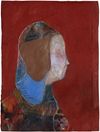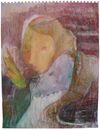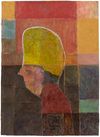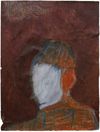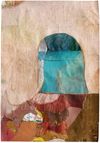Christian Andersen, Frederiksholms Kanal 28A, 1220 Copenhagen K, +45 2537 4101, info@christianandersen.net
Images
Press release
Have you never in your life, dear reader, come across people with the strange fancy of disliking everything yellow, and yellow itself as a colour? One would think that a beautiful lemon, a resplendent gold, a fiery orange, was something charming to look at. Where can the feeling of aversion come in? And ask this same class of people what colour they do like, and they will all answer as with one mouth: blue. Certainly, the azure of the celestial deeps is a sight to do one good. But when evening frames the azure in gold, then surely the beautiful becomes something more than beautiful and merges into the magnificent. Had I to choose between spending the rest of my days in a maize-coloured or a sky-blue room, I should probably, of the two colours named, prefer the yellow; but all the anti-yellowites to whom I have ever said so have always laughed at me, and pitied my taste.
Well now, I invert the question; I ask you to tell me if you have ever met a man who said he could not endure blue. Never, to a certainty. Never has anyone been found who abominated blue. Whence comes it, now, that a certain class of mankind agree in their dislike of yellow, and all agree in their liking for blue?
Colour-physics teach us that yellow and blue stand in a certain mutual relationship: they are complementary colours, occupying as it were opposite poles. Is it possible that underneath this fact something else lies hidden than the mere effect of the colour upon our eyesight? Some more fundamental difference than the mere optical difference of colour familiar to all of us, some difference which escapes our senses? And could there be appropriated to the perception of such a difference a difference also of human faculty, a difference to the effect that some might be able to perceive what is unrecognizable by others? Could there be, so to speak, men with two sorts of senses? That would be a somewhat peculiar state of affairs. Let us try and get further into it.
A girl, we may take it, is well enough pleased to see herself in the looking-glass. And perhaps, also, there are men who take pleasure in the reflection of their own dear selves. And who could begrudge them the pleasure, when a successful copy of God's lair masterpiece smiles back upon them, and awakens anticipatory joy in the conquest which already flushes their cheek? Is there anything in life more glorious or beatific than the beautiful Myself? How would it be though - and it might really be possible - if there were girls, women, men, who shy of mirrors ? Who turn away and cannot bear to see themselves in one? In very truth there are such persons. There are men, and not a few in number, who are caused a peculiar feeling of distress by a looking-glass, as though some sickly, repellent emanation came to them from it, so that they cannot stay quiet there for a minute. It is not merely their own portrait that the mirror throws back to them; it returns them also some indescribable, painful sort of impression, which some feel more and others less, while to others it is only just so far perceptible as to leave them with a definite dislike of mirrors. What is this? And what does it come from? Why do some men only experience this feeling of repulsion? Why not all?
From Carl Reichenbach: "Die Sensitiven". In: Odisch-magnetische Briefe, 1852



